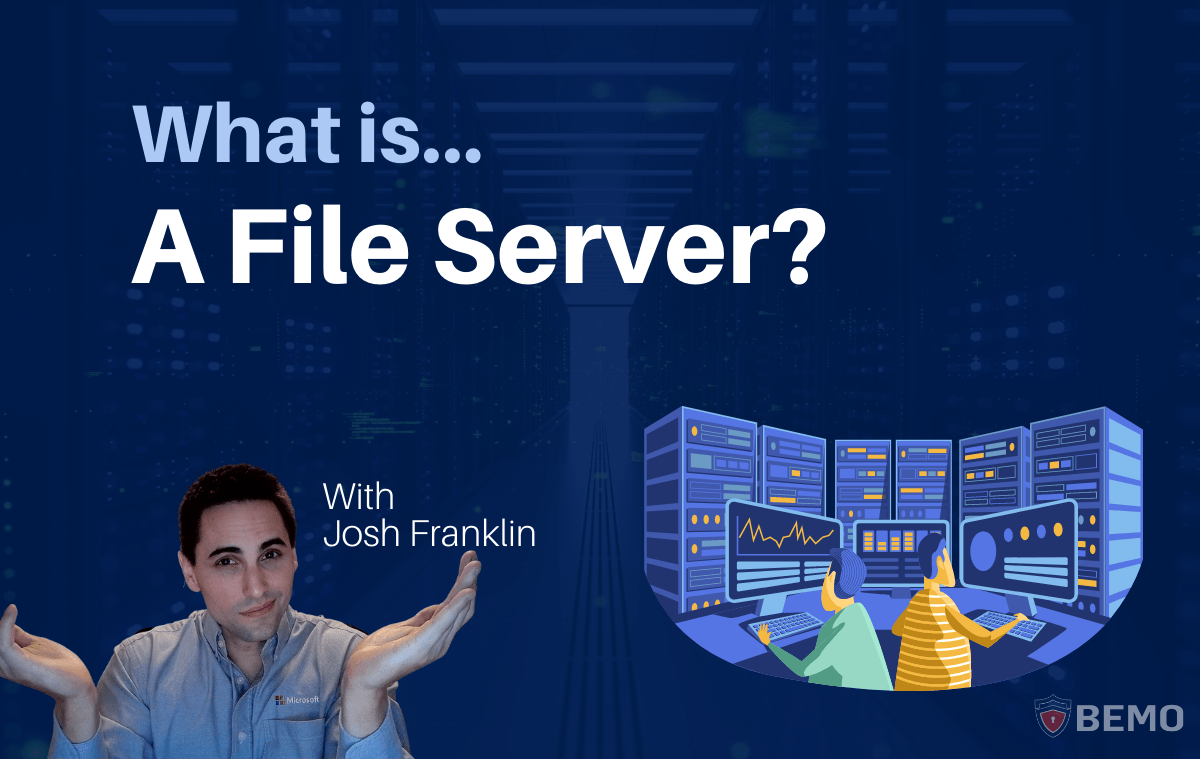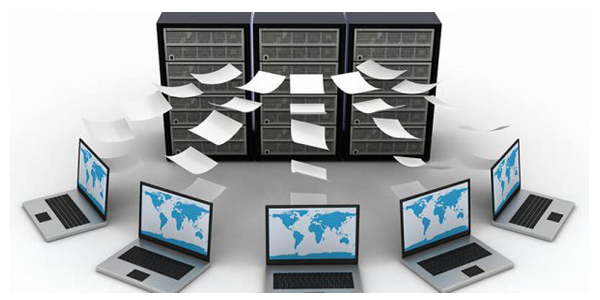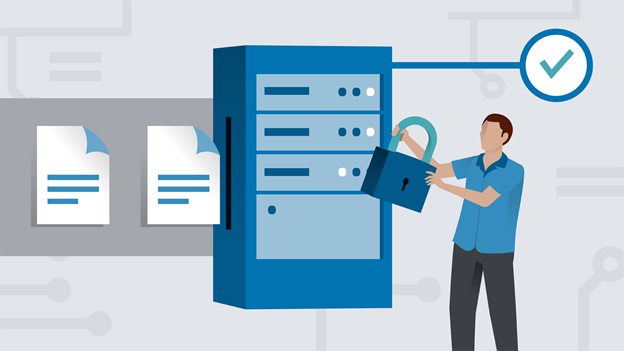
I would be willing to wager that you’ve heard of a file server before but can you be totally certain what it is and what it does? As new terms become part of our colloquial conversations (I mean…what is “The Cloud” anyways, right? 😉) sometimes we use them without truly knowing how they function. In this blog, we will go over all that and more. We’ll answer all your questions, from: What is a file server? to File Server pros and cons. In the end, you’ll not only be fully versed in the wonderous world of file servers, you’ll be able to confidently assess how to incorporate file servers into your business (or not). Let's jump on in.
Table of Contents
What is a file server and how does it work?
Why would I need a file server?
What are the pros of a file server?
What are the cons of a file server?
File server alternatives
How can I tell which one is right for me?
What is a file server and how does it work?
Want the easiest way to remember what a file server does? Think of a waiter or waitress (aka a server). You order whatever you like from the menu and the server brings it to you! Other people are also able to order the same exact items off that same menu. A file server is just like this but the menu items are files, photos, videos, etc.
The more complex definition of a file server is this: a computer or device that is responsible for the central storage and management of data files so that other computers on the same network can access them. A file server shares information meaning you don't have to transfer files by flash drive, hard drive, or some other external storage device (raise your hand if you remember the floppy disk…Bueller? Bueller? Anybody?).

Why would I need a file server?
A file server, as I mentioned earlier, is a server that stores files and documents. In a small business, a file server may either be a dedicated server, or even simply another workstation that is used to store your business files. A folder is created on the server to hold the files and that folder is shared so that the other computers in the office can access the files.
File servers provide a central location to store all of your business files so that multiple users can easily work with the same documents, spreadsheets and other data. This centralized storage also allows a business to backup just one computer to be sure their data is safe.
A file server is a great option for smaller businesses that want everything to be stored locally, while still allowing multiple employees access to various business files without having to physically access the device. So, instead of running to and fro between a shared computer and your own with floppy in hand, you can instead access the files from the safety of your own seat.
What are the pros of a file server?
Having a centralized file server for your business brings on several advantages. One of the biggest advantages is having remote access to your company files. When you have access to a File Server, you and your employees can easily access all information remotely. This means that if your file server is connected to the internet, authorized users can access data from anywhere, anytime.
Another advantage of having your own file server is the ability to configure it in as many ways as you wish. This gives you options about how you want files shared, how credentials will be assigned, where people will be able to access files from, etc. This will give you flexibility and allows you to set things up in a way that is unique, secure, and specialized for your organization.

What are the cons of a file server?
The major downside of having a traditional file server for sharing is the inflexibility and difficulty in maintaining such a server. Essentially, whatever size Hard Drive (HDD) you purchase for your file server is your storage limit. You do not have the ability to scale up or scale down in real-time. This means that if you’re using a 1TB HDD in your file server and you run out of space, you’ll either need to delete files to free up space, or add another HDD and configure it so that you have additional space. Or if you have multiple users accessing data at the same time, they may experience a bottleneck depending on the hardware you used when building the server.
You'll need a traffic cop...
On the flipside, let’s say you only have a couple of users accessing files at any given time, you may be paying for way more server than you need. On top of that, unless you use a managed server (a server hosted by a 3rd party), you will also have to be responsible for your own security and maintenance such as licensing, replacing old/failing hardware, security updates and features, as well as having someone on staff that actually knows how to work with on-premise servers. This can get very pricey very quickly, and depending on your setup it can cost you thousands of dollars per year not including the salary of whomever you have maintaining it for you.
File server alternatives
Are there file server alternatives? Definitely! As working remotely becomes the norm, many businesses are turning to cloud-based storage to fulfil their needs previously met by file servers. Cloud storage (OneDrive, SharePoint, Dropbox, etc.) are storage solutions that are hosted by large 3rd parties in their own data centers. A huge advantage of this is not only availability of files, but also ease of maintenance. When you use cloud storage solutions, the company that owns the data centers are responsible for security and maintenance. If you're curious about cloud storage, check out our post discussing SharePoint vs. OneDrive.
Another advantage of cloud storage is the ability to scale your resources as needed. As I previously mentioned, with a traditional file server you are limited by the hardware you used when it was built. You can’t scale resources on the fly, and you are at risk of the hardware becoming dated as time goes by. With cloud storage, you can easily scale your resources up and down as your business sees fit, which can save you money in the long run by ensuring you are only using what you need.
How can I tell which one is right for me?
Now that you’ve read this blog, you’re probably asking yourself which option best fits your needs. There are several factors that go into answering that question, but most importantly, you should ask yourself:
- How large is my organization, and do I plan on growing in the near future?
- Do I mind having my files stored locally on a machine, or do I want someone else to maintain them for me?
- Do I have someone on staff that is capable of setting certain permissions and policies within our server environment and performing hardware maintenance?
- Do I have the budget to scale up with hardware as necessary?
- Do my storage needs often change or are they static?
Once you answer these questions, you’ll have a better idea of which option is best for your organization. But if you need a little more assistance in deciding, feel free to reach out to us and I’d be more than happy to help. Click on my picture below or start a chat in the right-hand corner of your screen 💻:
Top 10 Posts
-
Windows 10 Pro vs Enterprise
-
Migrate From Gmail to Office 365: Step-By-Step Guide
-
Windows 10 Enterprise E3 vs E5: What's the Difference?
-
What are the 4 types of Microsoft Active Directory?
-
How to Migrate from GoDaddy to Office 365
-
Google Workspace to Office 365 Migration: A Step-by-Step Guide
-
How to Set Up Office 365 Advanced Threat Protection
-
10 Benefits of Microsoft Teams
-
Top 3 Reasons to Move From Google Drive to Microsoft OneDrive
-
How to remove Office 365 from GoDaddy (tips and tricks)
-2.png?width=1080&height=1080&name=Untitled%20design%20(5)-2.png)




Leave us a comment!